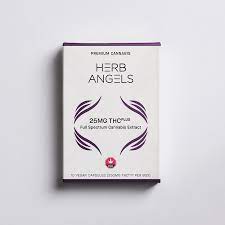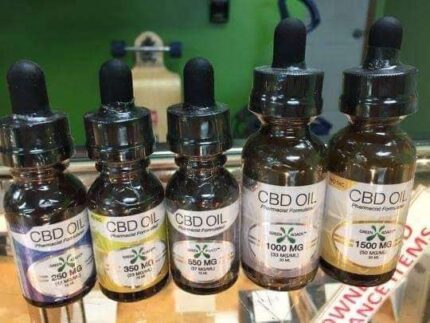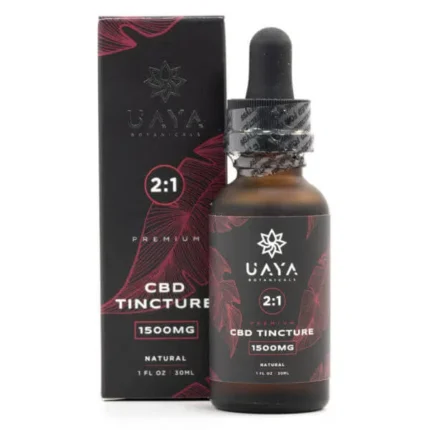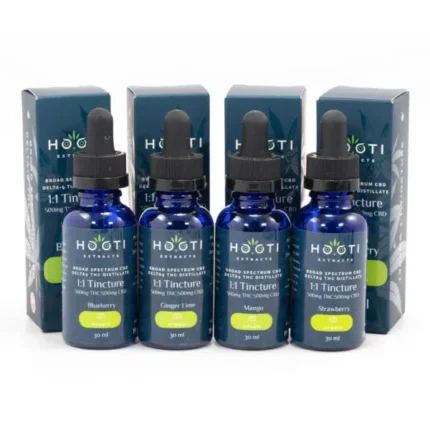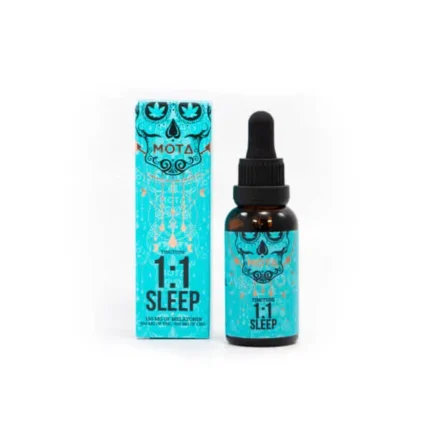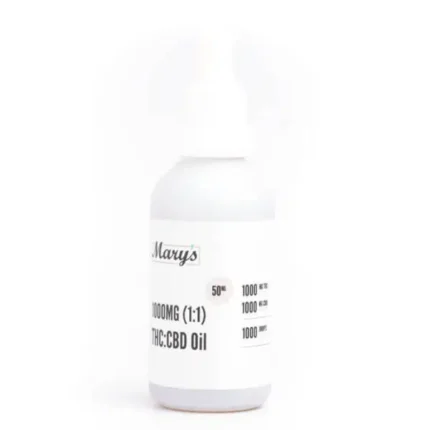What is Cannabis Oil?
Cannabis oil is a concentrated liquid that contains the active ingredients of the cannabis plant. The most common cannabinoids in cannabis oil are tetrahydrocannabinol (THC) and cannabidiol (CBD). THC is the psychoactive compound that causes the “high” associated with cannabis use, while CBD is non-intoxicating and has anti-inflammatory, anti-anxiety, and anticonvulsant properties. Other cannabinoids in cannabis oil include cannabigerol (CBG), cannabinol (CBN), cannabichromene (CBC), and tetrahydrocannabivarin (THCV).
Terpenes are aromatic molecules that give cannabis its distinctive smell and flavor. They also have various effects on mood, memory, and cognition. Some of the common terpenes in cannabis oil are myrcene, limonene, pinene, linalool, and caryophyllene.
Flavonoids are phytonutrients that give cannabis its color and antioxidant properties. They also modulate the effects of cannabinoids and terpenes. Some of the common flavonoids in cannabis oil are apigenin, quercetin, kaempferol, and cannflavin A.
Cannabis oil can be extracted from different parts of the cannabis plant, such as the flowers, leaves, stems, or seeds. The quality and potency of cannabis oil depend on the type of cannabis plant, the extraction method, and the purification process.
How is Cannabis Oil Made?
There are various methods of extracting cannabis oil from the plant material. Some of the common methods are:
- Water Extraction: This method uses cold water and ice to separate the trichomes (resin glands) from the plant matter. The mixture is then filtered through a series of screens or bags to collect the resin. The resin is then dried and pressed into a solid or semi-solid form. This method produces a solvent-free concentrate that preserves most of the cannabinoids and terpenes but has a low yield and potency⁴.
- Ethanol Extraction: This method uses ethanol (alcohol) as a solvent to dissolve the cannabinoids and terpenes from the plant matter. The ethanol is then evaporated or distilled to leave behind a concentrated oil. This method produces a high yield and potency but may also extract chlorophyll, fats, waxes, and other unwanted compounds⁴.
- Butane Honey Oil Extraction: This method uses butane as a solvent to extract the cannabinoids and terpenes from the plant matter. The butane is then purged using heat or vacuum to remove any residual solvent. This method produces a very potent and pure oil but also poses a high risk of explosion and contamination⁴.
- Supercritical CO2 Oil Extraction: This method uses carbon dioxide (CO2) in a supercritical state (between liquid and gas) as a solvent to extract the cannabinoids and terpenes from the plant matter. The CO2 is then released or recycled to leave behind a golden oil. This method produces a clean and safe oil with precise control over the composition and concentration⁴.
- Isopropyl Oil Extraction: This method uses isopropyl alcohol as a solvent to extract the cannabinoids and terpenes from the plant matter. The alcohol is then evaporated to leave behind a dark oil. This method produces a low-cost and easy-to-make oil but may also contain impurities and residues⁴.
After extraction, cannabis oil may undergo further purification processes to remove any unwanted compounds or contaminants. Some of these processes include:
- Winterization: This process involves freezing the cannabis oil and filtering it through a fine mesh or paper to remove any fats, waxes, lipids, or chlorophyll that may affect the taste, appearance, or stability of the oil.
- Decarboxylation: This process involves heating the cannabis oil to activate the cannabinoids by converting their acidic forms (such as THCA and CBDA) into their neutral forms (such as THC and CBD). Decarboxylation increases the potency and bioavailability of the cannabinoids.
- Distillation: This process involves separating the cannabinoids and terpenes from each other by using different boiling points or pressures. Distillation can produce a pure and isolated cannabinoid oil or a broad-spectrum or full-spectrum oil that contains a range of cannabinoids and terpenes.
What are the Benefits of Cannabis Oil?
Cannabis oil has many potential benefits for health and wellness, depending on the type and amount of cannabinoids and terpenes it contains. Some of the common benefits of cannabis oil are:
- Pain Relief: Cannabis oil can help reduce chronic pain and inflammation by interacting with the endocannabinoid system, which regulates pain perception and response. Cannabis oil can also modulate the activity of other neurotransmitters and receptors involved in pain signaling, such as serotonin, glutamate, and opioid¹.
- Anxiety Relief: Cannabis oil can help reduce anxiety and stress by activating the serotonin receptors, which regulate mood, emotion, and cognition. Cannabis oil can also balance the levels of cortisol, the stress hormone, and induce relaxation and calmness¹.
- Seizure Reduction: Cannabis oil can help reduce the frequency and severity of seizures in people with epilepsy and other neurological disorders by inhibiting the excitatory signals and enhancing the inhibitory signals in the brain. Cannabis oil can also protect the brain cells from damage and inflammation caused by seizures¹.
- Cancer Symptom Relief: Cannabis oil can help alleviate some of the symptoms and side effects of cancer and cancer treatment, such as nausea, vomiting, appetite loss, pain, fatigue, insomnia, and depression. Cannabis oil can also have anti-tumor effects by inducing apoptosis (cell death) and inhibiting angiogenesis (blood vessel formation) in some types of cancer cells¹.
- Neuroprotection: Cannabis oil can help protect the brain from neurodegeneration and neuroinflammation caused by aging, injury, or disease. Cannabis oil can also enhance neurogenesis (new brain cell formation) and neuroplasticity (brain cell adaptation) by modulating the expression of growth factors and synaptic proteins¹.
- Heart Health: Cannabis oil can help improve heart health by lowering blood pressure, reducing inflammation, and relaxing the blood vessels. Cannabis oil can also prevent or reduce the damage caused by oxidative stress and ischemia (lack of oxygen) in the heart tissue¹.
How to Use Cannabis Oil Safely?
Cannabis oil can be used in various ways, depending on the desired effects and personal preferences. Some of the common ways to use cannabis oil are:
- Oral Ingestion: Cannabis oil can be swallowed directly or mixed with food or drinks. This method has a slow onset of effects (30 minutes to 2 hours) but a long duration of effects (4 to 8 hours). This method is suitable for people who want a steady and lasting relief from their symptoms.
- Sublingual Absorption: Cannabis oil can be placed under the tongue and held for a few seconds before swallowing. This method has a faster onset of effects (15 to 30 minutes) but a shorter duration of effects (2 to 4 hours). This method is suitable for people who want a quick and discreet relief from their symptoms.
- Topical Application: Cannabis oil can be applied directly to the skin or mixed with creams or lotions. This method has a variable onset of effects (10 minutes to 2 hours) but a long duration of effects (4 to 6 hours). This method is suitable for people who want a localized relief from pain, inflammation, or skin conditions.
- Inhalation: Cannabis oil can be vaporized or smoked using a device such as a vape pen, dab rig, or pipe. This method has an immediate onset of effects (seconds to minutes) but a short duration of effects (1 to 3 hours). This method is suitable for people who want an intense and immediate relief from their symptoms.
When using cannabis oil, it is important to start with a low dose and gradually increase it until finding the optimal dose that works for you. The optimal dose depends on various factors such as body weight, metabolism, tolerance, medical condition, and product potency. A general guideline is to start with 5 milligrams (mg) of THC or CBD per day and increase by 5 mg every few days until reaching the desired effects.
It is also important to consult with your doctor before using cannabis oil, especially if you have any medical conditions or take any medications that may interact with cannabis. Some of the common interactions include:
- Blood Thinners: Cannabis may increase the risk of bleeding by inhibiting platelet aggregation and enhancing the effects of anticoagulants such as warfarin².
- Sedatives: Cannabis may increase the sedative effects of drugs such as benzodiazepines, opioids, antihistamines, antidepressants, antipsychotics, and alcohol².
- Anticonvulsants: Cannabis may alter the blood levels and efficacy of anticonvulsants such as phenytoin, carbamazepine, valproate, and lamotrigine1. This may result in either increased or decreased seizure control, as well as increased or decreased side effects of the anticonvulsants2.
What are the Risks and Side Effects of Cannabis Oil?
Cannabis oil is generally considered safe and well-tolerated by most people, but it also has some risks and side effects that should be aware of. Some of the common risks and side effects of cannabis oil are:
- Psychoactive Effects: Cannabis oil that contains THC can cause psychoactive effects such as euphoria, relaxation, altered perception, impaired memory, reduced reaction time, increased appetite, dry mouth, red eyes, and paranoia. These effects vary depending on the dose, tolerance, and individual sensitivity of the user. Some people may enjoy these effects, while others may find them unpleasant or disturbing. People who are new to cannabis oil should start with a low dose of THC and avoid driving or operating heavy machinery while under the influence.
- Drug Interactions: Cannabis oil can interact with some medications and supplements, as mentioned in the previous section. This can either enhance or reduce the effects of the drugs, as well as increase or decrease the risk of side effects. People who use cannabis oil should consult with their doctor before taking any other medications or supplements, and monitor their symptoms and blood levels regularly.
- Allergic Reactions: Cannabis oil can cause allergic reactions in some people who are sensitive to cannabis or its components. The symptoms of an allergic reaction may include skin rash, itching, swelling, hives, difficulty breathing, or anaphylaxis. People who have a history of cannabis allergy or other allergies should be cautious when using cannabis oil and seek medical attention immediately if they experience any signs of an allergic reaction.
- Contamination: Cannabis oil can be contaminated with pesticides, heavy metals, solvents, molds, bacteria, or fungi if the cannabis plant or the extraction process is not done properly. This can pose a serious health risk for the user and cause various infections or diseases. People who use cannabis oil should only buy it from reputable sources that have tested their products for purity and potency.
- Dependence and Withdrawal: Cannabis oil can cause dependence and withdrawal in some people who use it regularly and heavily. Dependence means that the user needs more cannabis oil to achieve the same effects or to avoid unpleasant feelings. Withdrawal means that the user experiences physical or psychological symptoms when they stop using cannabis oil. The symptoms of withdrawal may include irritability, anxiety, insomnia, depression, restlessness, headache, nausea, or cravings. People who use cannabis oil should be aware of their consumption patterns and seek help if they have trouble quitting or reducing their use.
How to Choose the Right Cannabis Oil for You?
Cannabis oil comes in different types, forms, and potencies, which can make it challenging to choose the right one for your needs and preferences. Here are some factors to consider when choosing cannabis oil:
- Type of Cannabis: Cannabis oil can be derived from hemp or marijuana, which have different legal status and effects. Hemp-derived cannabis oil contains less than 0.3% THC, which means it is legal in most states and countries and does not cause psychoactive effects. Marijuana-derived cannabis oil contains more than 0.3% THC, which means it is illegal in some states and countries and can cause psychoactive effects. Depending on your medical condition, legal situation, and personal preference, you may opt for hemp-derived or marijuana-derived cannabis oil.
- Spectrum of Cannabinoids: Cannabis oil can be classified into three categories based on the spectrum of cannabinoids it contains: isolate, broad-spectrum, and full-spectrum. Isolate cannabis oil contains only one cannabinoid, usually CBD or THC, which means it has a pure and consistent potency but lacks the synergistic effects of other cannabinoids and terpenes. Broad-spectrum cannabis oil contains a range of cannabinoids except THC, which means it has a moderate potency and some synergistic effects but does not cause psychoactive effects. Full-spectrum cannabis oil contains a range of cannabinoids including THC, which means it has a high potency and the most synergistic effects but can also cause psychoactive effects. Depending on your medical condition, tolerance, and personal preference, you may opt for isolate, broad-spectrum, or full-spectrum cannabis oil.
- Form of Cannabis Oil: Cannabis oil can come in different forms, such as tinctures, capsules, edibles, topicals, or vape liquids. Each form has its own advantages and disadvantages in terms of convenience, discretion, bioavailability, onset, duration, and dosage. Tinctures are liquid drops that can be taken sublingually or orally. They are easy to use, discreet, and have a high bioavailability and a fast onset but a short duration. Capsules are solid pills that can be swallowed with water. They are convenient, discreet, and have a consistent dosage but a low bioavailability and a slow onset but a long duration. Edibles are food or drinks that contain cannabis oil. They are tasty, discreet, and have a long duration but a low bioavailability and a slow onset that can vary depending on the individual’s metabolism and stomach contents. Topicals are creams or lotions that contain cannabis oil. They are easy to apply, discreet, and have a localized effect but a low bioavailability and a variable onset and duration. Vape liquids are oils that can be vaporized or smoked using a device such as a vape pen or dab rig. They are easy to use, have a high bioavailability and an immediate onset but a short duration and may pose some health risks due to the inhalation of solvents or additives.
- Potency of Cannabis Oil: Cannabis oil can have different potencies depending on the concentration of cannabinoids and terpenes it contains. The potency of cannabis oil is usually measured in milligrams (mg) per milliliter (ml) or gram (g). The higher the potency of cannabis oil, the stronger the effects and the lower the dosage required. However, the potency of cannabis oil also depends on the individual’s body weight, metabolism, tolerance, medical condition, and product quality. Therefore, it is important to start with a low dose of cannabis oil and gradually increase it until finding the optimal dose that works for you.
When choosing cannabis oil, it is also important to read the product label carefully and look for information such as:
- Ingredients: The product label should list all the ingredients in the cannabis oil, including the type of cannabis plant (hemp or marijuana), the spectrum of cannabinoids (isolate, broad-spectrum or full-spectrum), the concentration of cannabinoids (mg/ml or mg/g), and any other ingredients such as carrier oils, flavors, or additives.
- Lab Results: The product label should provide a link or a QR code to access the lab results of the cannabis oil, which are also known as certificates of analysis (COAs). The lab results should show the exact amount and percentage of cannabinoids and terpenes in the cannabis oil, as well as the absence of any contaminants such as pesticides, heavy metals, solvents, molds, bacteria, or fungi. The lab results should be conducted by a third-party and accredited laboratory that follows the industry standards and regulations.
- Expiration Date: The product label should indicate the expiration date of the cannabis oil, which is the date until which the product maintains its quality and potency. The expiration date depends on various factors such as the type of cannabis plant, the extraction method, the storage conditions, and the exposure to light, heat, air, and moisture. Generally, cannabis oil can last for 12 to 24 months if stored in a cool, dark, and dry place.
- Customer Reviews: The product label should provide a link or a QR code to access the customer reviews of the cannabis oil, which are also known as testimonials or feedback. The customer reviews can give you an idea of the quality, effectiveness, and satisfaction of the product from other users who have similar needs and preferences as you. The customer reviews should be honest, unbiased, and verified by a reputable platform or website.
How to Store and Dispose of Cannabis Oil?
Cannabis oil should be stored in a cool, dark, and dry place, away from direct sunlight, heat, air, and moisture. Exposure to these elements can degrade the quality and potency of the cannabis oil over time. Cannabis oil should also be stored in an airtight and opaque container, such as a glass jar or a plastic bottle, to prevent oxidation and contamination. Cannabis oil should also be kept out of reach of children and pets, as they may accidentally ingest it and experience adverse effects.
Cannabis oil should be disposed of properly when it expires or becomes unusable. Cannabis oil should not be flushed down the toilet or sink, as it may harm the environment and the water supply. Cannabis oil should also not be thrown in the trash, as it may attract animals or scavengers who may ingest it and experience adverse effects. Cannabis oil should be disposed of in a safe and responsible manner, such as:
- Returning it to the Dispensary: Some dispensaries may accept expired or unwanted cannabis oil and dispose of it for you. You can contact your local dispensary and ask if they offer this service.
- Mixing it with Unwanted Substances: You can mix your cannabis oil with some unwanted substances, such as coffee grounds, kitty litter, or dirt, to make it less appealing and less accessible to anyone who may find it. You can then place the mixture in a sealed bag or container and throw it in the trash.
- Incinerating it: You can burn your cannabis oil in a safe and controlled environment, such as a fireplace, a fire pit, or an incinerator. This will destroy the cannabinoids and terpenes in the cannabis oil and reduce the environmental impact. However, you should be careful not to inhale the smoke or fumes from the burning cannabis oil, as they may contain harmful chemicals or toxins.
FAQ: Frequently Asked Questions about Cannabis Oil
In this section, we will answer some of the most frequently asked questions about cannabis oil, such as:
- What is the difference between cannabis oil and hemp oil?
Cannabis oil and hemp oil are both derived from the cannabis plant, but they have different characteristics and uses. Cannabis oil is extracted from the flowers, leaves, stems, or seeds of the cannabis plant, and contains a high concentration of cannabinoids and terpenes, which are responsible for the medical and recreational effects of cannabis. Hemp oil is extracted from the seeds of the hemp plant, which is a variety of cannabis that contains less than 0.3% THC. Hemp oil contains a low concentration of cannabinoids and terpenes, but a high concentration of omega-3 and omega-6 fatty acids, which are beneficial for skin, hair, and heart health.
- How do I know if cannabis oil is legal in my state or country?
Cannabis oil is subject to different laws and regulations depending on the state or country where you live. In general, hemp-derived cannabis oil that contains less than 0.3% THC is legal in most states and countries, while marijuana-derived cannabis oil that contains more than 0.3% THC is illegal in some states and countries. However, the legal status of cannabis oil may also depend on other factors such as the purpose of use (medical or recreational), the source of the product (licensed or unlicensed), and the possession limit (personal or commercial). Therefore, it is important to check the local laws and regulations before buying or using cannabis oil.
- How do I know if cannabis oil is safe and effective for me?
Cannabis oil is generally considered safe and effective for most people, but it may also have some risks and side effects that vary depending on the individual’s medical condition, tolerance, dosage, and product quality. Therefore, it is important to consult with your doctor before using cannabis oil, especially if you have any medical conditions or take any medications that may interact with cannabis. It is also important to start with a low dose of cannabis oil and gradually increase it until finding the optimal dose that works for you. It is also important to buy cannabis oil from reputable sources that have tested their products for purity and potency.
- How do I store and dispose of cannabis oil?
Cannabis oil should be stored in a cool, dark, and dry place, away from direct sunlight, heat, air, and moisture. Exposure to these elements can degrade the quality and potency of the cannabis oil over time. Cannabis oil should also be stored in an airtight and opaque container, such as a glass jar or a plastic bottle, to prevent oxidation and contamination. Cannabis oil should also be kept out of reach of children and pets, as they may accidentally ingest it and experience adverse effects.
Cannabis oil should be disposed of properly when it expires or becomes unusable. Cannabis oil should not be flushed down the toilet or sink, as it may harm the environment and the water supply. Cannabis oil should also not be thrown in the trash, as it may attract animals or scavengers who may ingest it and experience adverse effects. Cannabis oil should be disposed of in a safe and responsible manner, such as returning it to the dispensary, mixing it with unwanted substances, or incinerating it.
cbd oil australia,
cbd oil benefits,
cbd oil for dogs,
cbd oil side effects,
buy cbd oil,
cbd oil australia chemist warehouse,
how much is cbd oil on prescription,
cbd oil for anxiety,
how to take cbd oil,
is cbd oil legal,
cbd oil anxiety,
how to make cbd oil,
hemp oil vs cbd oil,
cbd oil adelaide,
full spectrum cbd oil,
what is cbd oil,
is cbd oil legal in australia 2023,
australian cbd oil,
benefits of cbd oil,
when will chemist warehouse stock cbd oil,
cbd oil for sleep,
buy cbd oil australia,
cbd oil buy,
how much is prescription cbd oil australia,
is cbd oil legal in victoria,
cbd oil sydney,
chemist warehouse cbd oil,
cbd oil sleep,
cbd oil priceline,
cbd oil perth,
cbd oil melbourne,
cbd oil vape,
cbd oil dosage,
6000mg cbd oil australia,
how to use cbd oil,
cbd oil for sale,
cbd oil dogs,
cbd oil side effects on liver,
cbd oil near me,
chemist warehouse cbd oil price,
australian cbd oil reviews,
cbd oil canberra,
cbd oil brisbane,
cbd oil in australia,
best cbd oil australia,
is hemp oil the same as cbd oil,
cbd oil online,


